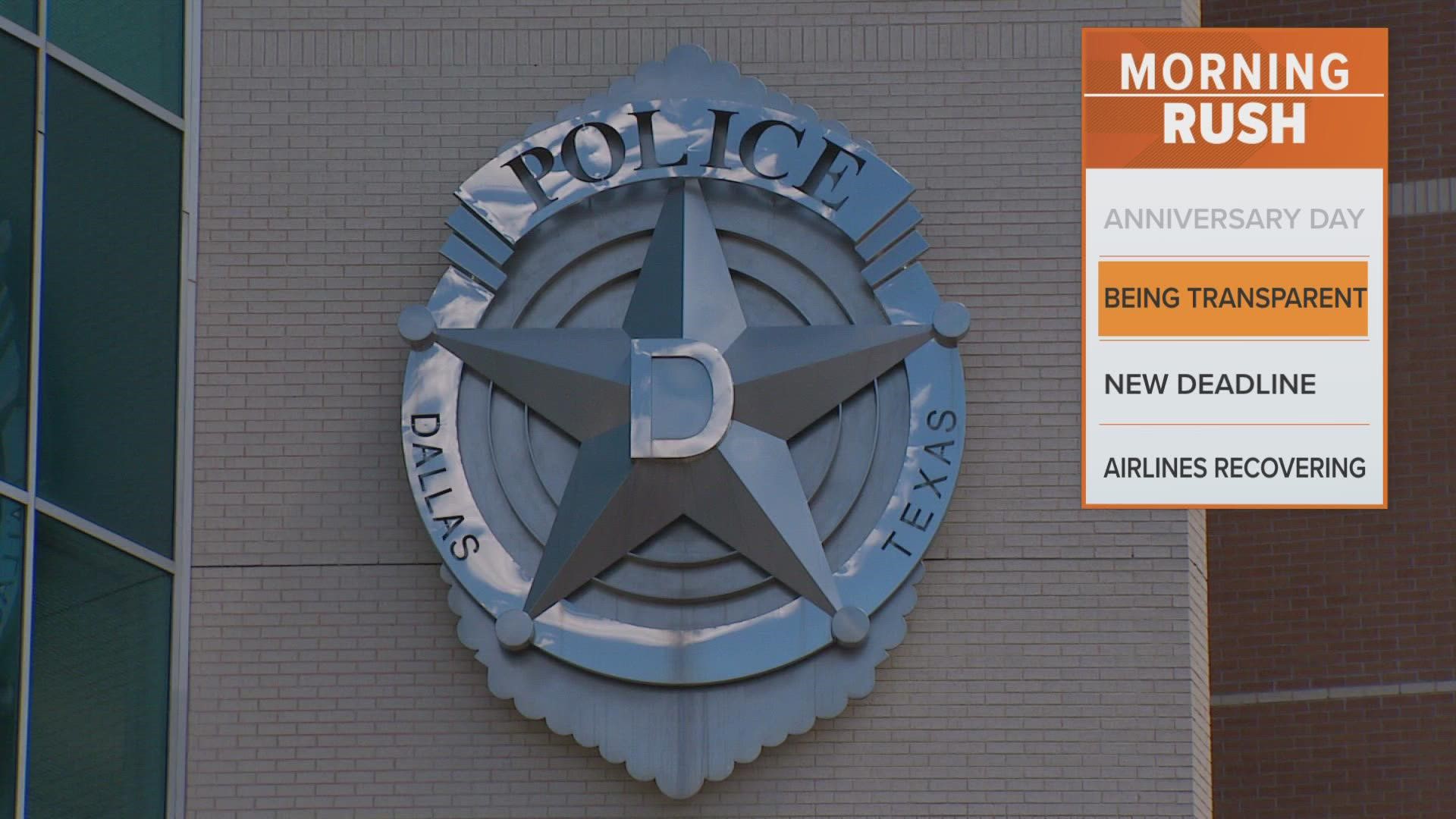DALLAS — Dallas police officials are now requiring officers to wear their body-worn cameras at all off-duty jobs they work, according to a memo from police Chief Eddie Garcia.
Garcia sent the memo to all police department employees on Monday.
"There are many instances where officers are working off-duty jobs and taking reports, affecting arrests, and/or involved in use of force incidents," Garcia said in the memo. "These incidents are crucial for prosecution, transparency, and for justification."
Garcia's memo came after an off-duty officer, Keenan Blair, was not wearing a body-worn camera when he fired shots at a vehicle following a shooting over the weekend.
Blair and another officer were working an off-duty job at the 216 Lounge in the Bishop Arts area when an argument and shooting happened. Three people were injured in the initial shooting, though Blair's shots did not strike anyone. The other officer working off-duty with Blair also did not have a body camera.
Officers have the option to work off-duty jobs, outside of their normal shifts, but the jobs have to be approved by their supervisor.
Garcia called the wearing of body cameras, both on-duty and at off-duty jobs, "imperative."
Garcia reminded officers that they are responsible for having their cameras charged before their shift, a task "no different than charging your Department issued radio and flashlight."
Before Garcia's memo, the police department's general orders said officers "may" use body-worn cameras at off-duty jobs. The general orders have since been updated, changing "may" to "will."
Officers are also required to download all video from their cameras by their next shift, according to the general orders.
Most Dallas police officers now have body cameras, though that wasn't the case in recent years as the city worked to increase the department's supply of the technology.
Mike Mata, president of the Dallas Police Association union representing officers, said he "absolutely" approves of Garcia's policy change.
"This policy was not initiated earlier only due to the fact that at the time we did not have enough body cameras for every officer and we had a cloud storage issue," Mata said. "Now most, if not all, patrol officers have been issued a body camera and our media storage limitations have been increased to accommodate the increase in capacity. So in this case, it was just a matter of policy catching up to progress."
George Aranda, the president of Dallas' National Latino Law Enforcement Organization, also supported the policy change.
Aranda said "any tool that the department can add to show transparency and to show that our officers are doing their job to the best of their ability is a plus for all law enforcement."

